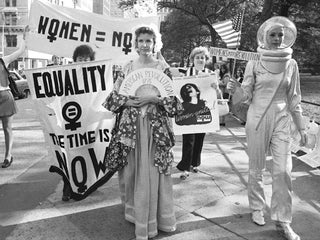Summary
Presidential elections almost always focus on candidates’ personalities and goals, but your 2020 election vote could also have a powerful impact on local politics.
The content on this page is accurate as of the posting date; however, some of our partner offers may have expired. Please review our list of best credit cards, or use our CardMatch™ tool to find cards matched to your needs.
For many Americans, it’s easy to get caught up in the partisan drama of the 2020 presidential election. Voters are tired of less-than-presidential theatrics where unlikely stars, such as a fly on Mike Pence’s head during the vice presidential debate, have trended on social media in place of substantive policy discussions.
But, despite the election fatigue that we may all be feeling, there is more at stake during this election than just the battle for the White House. Local and state offices are also on the ballot and will have a direct impact on the everyday lives of American citizens – perhaps even more so than the presidential election.
See related: Money, power and politics in women’s hair care
The 2020 election at a glance
With less than two weeks until the United States Presidential election, voters nationwide are preparing to cast their ballot for local, state, and federal candidates to represent them. In 43 states and the District of Columbia, over 51.8 million Americans have already voted early or by mail. This data points to an electorate that is uniquely energized for the election, and for good reason.
Along with key issues such as the handling of the coronavirus pandemic and repairing a severely battered economy, voters are tasked with choosing candidates who will impact health care options, abortion rights, race relations, civil rights and more.
The significance of this election cannot be overstated.
But, even though the United States is on pace to see historic voter turnout in what is arguably one of the most consequential elections of a generation, many Americans are unsure if they will vote or if their vote matters.
So, does my vote really even matter?
The short answer: yes!
The longer answer: also yes (with a bit of context added in).
It’s important to understand that despite what you may have heard about the electoral college, your vote does matter. If it didn’t, there wouldn’t be historic and current examples of voter suppression and intimidation to keep minorities and women from the ballot box.
August 18 of this year marked the centennial anniversary of women gaining the right to vote in the United States. If you take a minute to think about that, the ratification of the 19th Amendment – which enfranchised nearly 50% of the U.S. population – isn’t even as old as Macy’s department store. Of course, in practice, even the 19th Amendment did not guarantee equitable voting rights for all women as women of color were often overlooked by white suffragists and routinely kept from voting due to their race.
In the years leading up to 1920, there was great opposition to women gaining the vote, with a well-known professor at the Massachusetts Institute of Technology, William T. Sedgwick, once claiming that women had inferior brains that “couldn’t handle the rigors of voting.”
In reality, however, women are quite capable of voting and there is an argument to be made that Sedgwick and other anti-suffragists knew this as well. Individuals who wanted women to remain disenfranchised used pseudoscience and dog-whistle politics to hide their true fear that expanding the electorate would shake up the status quo.
They weren’t wrong about that.
Impacts of inclusive enfranchisement
History shows that women gaining the right to vote, “coincided with immediate increases in state government expenditures and revenue and more liberal legislative voting patterns for federal representatives.” according to John Lott and Lawrence Kenny, political scientists at Harvard University.
The impact of this increase in government spending?
In the years that followed, “increased government spending on health reduced child mortality by 8-15%, preventing 20,000 child deaths annually,” according to a 2012 report published by the National Bureau of Economic Research.
Voting quite literally saved lives.
And that’s just the beginning. Women gaining the right to vote in 1920 wasn’t the finish line for inclusive voter enfranchisement in the U.S., but rather one step in the long journey to equality.
See related: A missing voice in financial services
The 15th Amendment, which gave men of all races the right to vote, was signed into law in 1870. But despite the mandate of this amendment, large portions of the Black community were systemically kept from voting for nearly another hundred years.
It wasn’t until the passage of the Voting Rights Act of 1965 that discriminatory practices aimed at keeping Black citizens from voting such as poll taxes, literacy tests and outright intimidation at voting places became illegal.
The impacts of the Voting Rights Act were dramatic. According to a study by Harvard Kennedy School, expanding the franchise to people of color, “increased minority voter turnout by 30%” and in southern states like Mississippi, it increased minority voter turnout by more than 50%.
Finance on the ballot
When it comes to the 2020 election, women’s financial future will be on the ballot alongside social issues. For a real-world example of this, we spoke with Louisiana State Rep. Aimee Adatto Freeman about the consequential nature of the 2020 election and how your vote impacts fiscal policy.
Freeman represents Louisiana’s 98th district and is passionate about women succeeding in finance. She sits on the House Committee on Appropriations in her state, in addition to running a strategic planning company that helps businesses with financial strategy and negotiation.
“Having a seat at the table is a big part of the conversation, and I like to encourage women to run for office who are business-minded, strategic and know how to negotiate,” explained Freeman when discussing the importance of women in finance.
With her female constituents in mind, Rep. Freeman sponsored a bill (HB328) this year that allowed local governments the option to exempt taxes for feminine products and diapers – including adult diapers. The bill was co-authored by thirty-eight representatives from both sides of the aisle.
Bipartisan support was instrumental in the passage of the bill because Louisiana is not currently in a fiscal session that would allow them to change tax policy at the state level. Because Freeman’s bill allows local governments the choice to exempt these taxes, it wasn’t held until the 2021 fiscal term.
Following the passage of her law, New Orleans and Baton Rouge passed legislation to cut the tax rate on feminine products and diapers from 5% to 2.5%.
While this number may seem small, it is not insignificant.
According to Lift Louisiana, an organization that advocates for the rights of women in their state, “New Orleans has the nation’s 9th highest child poverty rate at 39%, and abolishing local taxes on diapers would mean families annually saving $73 per child, which is approximately half the bill of a week’s worth of groceries.”
See related: The hidden cost of being a woman
They go on to explain that, “a local tax exemption on feminine hygiene items would save people who menstruate $7.95 per year, and over their lifetime, it would add up to $318. The total savings for eliminating the pink tax in New Orleans is roughly $1.5 million.”
While this may seem like a mission accomplished for the elimination of unfair gender-based pricing in Louisiana, it is unfortunately just a step in the right direction that needs continued support to survive.
As Freeman explained, “some Republicans who weren’t sure if they were for it [HB328], decided we should allow it to happen because people needed these cuts in the pandemic. So, there is a sunset on this bill in December of 2021. This is temporary and I hope to make it permanent.”
Legislation such as HB328 is one of many fiscal policies that aren’t officially on the ballot in 2020 but will be directly impacted by the results of the election in the years that follow.
When speaking about the possibility of a future statewide tax cut on feminine hygiene products, Freeman stressed that every vote counts in this election.
“It depends on if voters can elect [people] who care about this policy. Voters need to elect representatives who will be willing to listen and learn about how these products are essential. When you are a mom of four kids and you’re struggling to afford diapers, that’s a lot of money out of your pocket. And in the 21st century, women shouldn’t have to pay a pink tax” said Freeman.
See related: The pink tax: What it is and how you can battle it
Issues such as upholding pink tax legislation are not unique to Louisiana. Now is the time for all voters to research lesser-known candidates and offices that will be on their local ballot to ensure that impactful financial legislation does not catch them by surprise in 2021.
Voter resources
Looking for more resources on how to vote?
Step 1: Check if you are registered.
Not registered? You still may have time! Twenty-one states and the District of Columbia allow same-day voter registration. You can find out if your state is on that list here.
Step 2: Find your polling location.
Step 3: Know what your state requires on Election Day.
Thirty-six states have laws in place requiring voters to show identification to cast their ballot. If your state is one of them, make sure you bring your identification to the polling place.
Additionally, states that don’t have voter ID laws may require the ballot to be verified against your signature, so make sure you keep that John Hancock consistent.
Step 4: Be decisive
In the best of times, Election Day can be a hectic affair with long lines, overwhelmed poll workers, and glitchy voting machines.
When you go to vote on Election Day, plan for it to take hours even if it may only take minutes. Pack water, charge your phone and arrange child care if need be. Some states have already seen lines that take seven hours or more during early voting, and Election Day is bound to be no different.
Low-income communities often have fewer polling locations per capita than affluent communities, which can lead to even longer wait times. If you find yourself in a long line on Election Day – stay! If you are in line before your designated polling center closes, they must count your vote.
Step 5: Be persistent
With a record number of Americans choosing to vote by mail this election cycle, persistence will be key to ensuring that your vote is counted. If you voted by mail, check and see if your ballot was actually counted. Thirty-nine states and the District of Columbia allow voters to track their absentee ballots online.
For more resources on voting and the election, visit www.vote.org
Editorial Disclaimer
The editorial content on this page is based solely on the objective assessment of our writers and is not driven by advertising dollars. It has not been provided or commissioned by the credit card issuers. However, we may receive compensation when you click on links to products from our partners.



